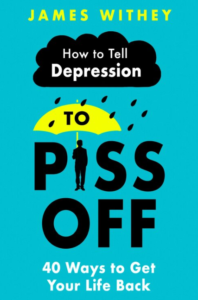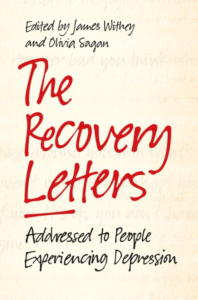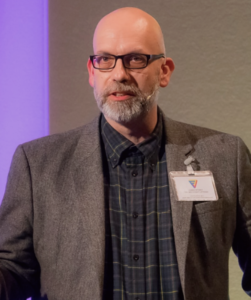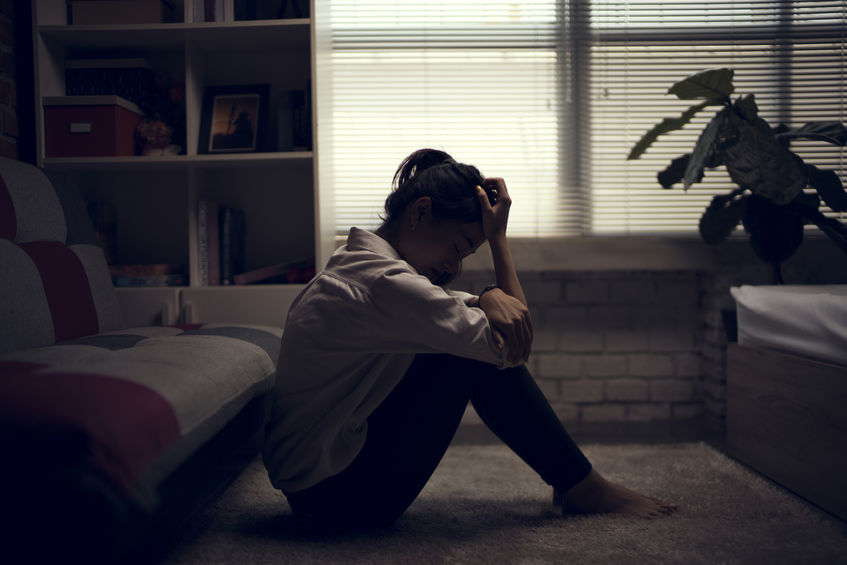Depression is more prevalent than ever. With over 264 million people of all ages currently suffering from it, depression ranks as the world’s most common mental disorder, according to the World Health Organization. Yet despite its widespread hold, stigma and misapprehension continue to be attached to the disorder. James Withey, author of How To Tell Depression to Piss Off: 40 Ways to Get Your Life Back and The Recovery Letters and creator of the project for which it’s based, is an expert on the subject. He recently spoke with WellWell about the chronic misconceptions about depression, those who suffer from it, the unique challenges COVID-19 presents for them and the importance of acknowledging the condition.
Something that jumps out immediately about your new book, How To Tell Depression To Piss Off, is the levity with which you wrote it. What do you think is the importance of humor when approaching a topic such as depression?
It’s essential, actually. I think depression is bloody awful enough but especially when it takes away your humor. There were times when my depression was so bad, I couldn’t laugh at anything. I’d watch comedy programs and feel nothing. So, I wanted the book to have balance. This is a really heavy subject and living with depression is truly awful, but I didn’t want the book to drag people down. I wanted it to have some humor along the way to show how much of a tool it can be. Additionally, it’s important to reflect on how ridiculous depression can be. I can drop a tomato on the floor and suddenly have suicidal thoughts, that’s as ridiculous as it is awful.
Awareness of depression as a clinical condition does seem to be at an all-time high. Yet, it’s still widely misunderstood. What are some of the misconceptions people hold because it doesn’t always surface as a direct result of some terrible event or something you’d think was generally depressing?
Yeah, it’s why I think the word depression can be problematic because it has a wide definition that doesn’t always, and more often doesn’t, refer to the clinical condition. It’s usually in a more casual way. For example, “I’m so depressed because my football team lost.” That’s not using the word incorrectly. It’s not the kind of depression so many of us suffer from. The kind that can really ruin a person’s life. But that’s the more common understanding so it can lead to a lot of underestimation towards the severity of clinical depression. It can be hard for people to understand the trauma and seriousness of the illness when their only exposure to the word has been somewhat trivial.
So we have this word “depression,” which is overused to the point it comes off inconsequential. On the other end of the spectrum, you have “suicide”—a word so harsh and intense that people often are afraid to talk about it. How do we bridge that gap?
I think the best way is by talking about it and telling the stories of our own depression. We have to fight that sigma and be open about what we’re going through and feeling. And it goes beyond celebrities telling their stories and raises awareness, we have to do it on a smaller, more immediate scale. Discuss it with friends, family and even colleagues.
Why is it important to talk about this with people in your everyday life opposed to a celebrity?
It’s way more impactful when someone you actually know says they’re depressed, then they’ll know it’s real and in front of them to confront. Celebrities and prominent figures are often very open about mental health and it’s great for raising awareness. But celebrities seem so disconnected from society, their lives feel barely grounded in reality. A family member, though, or someone at work—it’s harder to ignore depression’s relevance when it’s that close to home.
Beyond medication and therapy, if you look at a lot of the common means of coping with depression, creating a social network, reducing stress, exercise, these are all things that are especially difficult to accomplish now with COVID-19 and social distancing. How do you think the impact of the coronavirus and the isolation may have impacted those suffering with depression?
It’s massive. That kind of isolation without a doubt can worsen symptoms for those living with depression. Beyond that, I know countless people who have developed mental health problems through all this, especially anxiety. So many of us develop routines to help combat our symptoms, often including things we can’t do right now like go to the gym or out with friends. We’re all stuck at home without our coping mechanisms, but we can still talk about what we’re going to through, even online. It’s crucial for people to know they’re not alone in suffering, especially now in isolation.
Your first book and the site it was based on, The Recovery Letters, is at its core a collection of letters that are essentially people telling other people, “You are feeling this and that’s okay.” What do you think is the importance of us just acknowledging that we’re having these feelings rather than keeping them balled up?
I think it’s vital. One of the things that worries me, in terms of how mental health’s going at the moment, is that a lot of people talk about resilience and the need to be resilient and actually, it’s the opposite. Actually, you’ve got to be vulnerable, you’ve got to cry, and you’ve got to say when you’re feeling weak and need help. We don’t need to be more resilient or power through, we need to be more in touch with what’s going on express that. There’s a real danger in keeping things bottled up, that’s when people have breakdowns. The Recovery Letters developed out of my own acknowledgement of what I was going through and the hope my vulnerability and openness would inspire others to confront what they were dealing with. That connection from one unwell person to another is really important and certainly, that’s what I needed.
 About James Withey
About James Withey
James Withey is the founder of The Recovery Letters project which publishes online letters from people recovering from depression. He is the co-editor of the bestselling book The Recovery Letters: Addressed to People Experiencing Depression and author of How To Tell Depression to Piss Off: 40 Ways to Get Your Life Back. Mr. Withey is also a public speaker, often discusses topics such as mental health and depression.
Learn More at www.jameswithey.com












